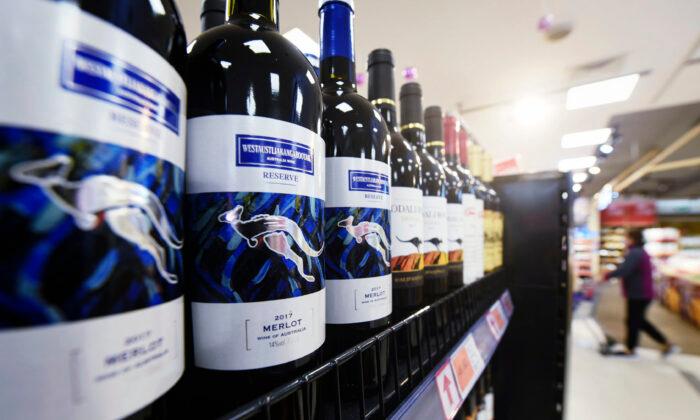China could live to regret its economic trade tactics against Australia, an expert warns, as the trade dispute between the two countries plummets to new lows with further bans on Australian products expected.
Prof. James Laurenceson, a China expert from the University of Technology Sydney, has said there is no question that the more restrictions the Chinese regime imposes onto Australian exports the more risks Beijing injects into trade ties with Australia.
“In the longer term, it generates the exact opposite outcome to what the country inflicting the punishment might be hoping for,” Laurenceson said.“This is why disrupting trade is so counter-productive—whether its China, the US, or any other country doing the disrupting.”
Laurenceson, the director of the Australia-China Relations Institute (ACRI), noted that the more China applies coercive pressure to Australia, the more likely Australian companies are to seek out other markets and opportunities to alleviate the coercive pressure.
Battaglene has been advising exporters to expand into other markets like India and Africa, and looking at other Asian markets that were neglected with the growth of China.
“We see great potential in these markets, but they require a lot of on-the-ground cooperation, ministerial involvement, and trying to get down some of those technical barriers,” he said. “It’s very hard for people to take a profit cut and go to another market. But I don’t think you'll have any trouble in convincing people of that now.”
Likewise, the beef and agricultural industries are also becoming more risk-averse to doing business with China.
“I recently went through submissions to a recent federal parliamentary inquiry into trade and investment diversification, and all but one submission from industry groups and individual ag companies were arguing for diversification,” Waldron said.
China Not Placing Itself at Risk
Waldron noted that the Chinese Communist Party’s trade attacks had been targeted only to hurt Australian exports that China did not need. Whereas iron ore and wool, which China relies heavily on for its big industries like steel and cloth production, were not targeted.Pointing to the case of wool, Waldron explained that China could hurt the Australian wool industry, which sends nearly 90 percent of its exports to China—worth $2.5 billion. However, they have not as this would do too much damage to China itself.
“Eighty to ninety percent of its fine wool requirements, for the worsted sector, comes from Australia, which would effectively close down those Chinese worsted mills if the trade was halted. China is not prepared to pay that cost, but it is for some of these other industries, where there are supply alternatives,” Waldron said.
Rather, Waldron believes that China is only hurting industries that would lobby the government to change the Morrison government’s behaviour and policy setting.
Something Laurenceson said is failing miserably as there is no strong pressure on the government to change its stance to Beijing.
“Beijing’s trade attacks on Australia have so far only increased domestic political support for the Australian government. No-one likes a bully,” he said.




